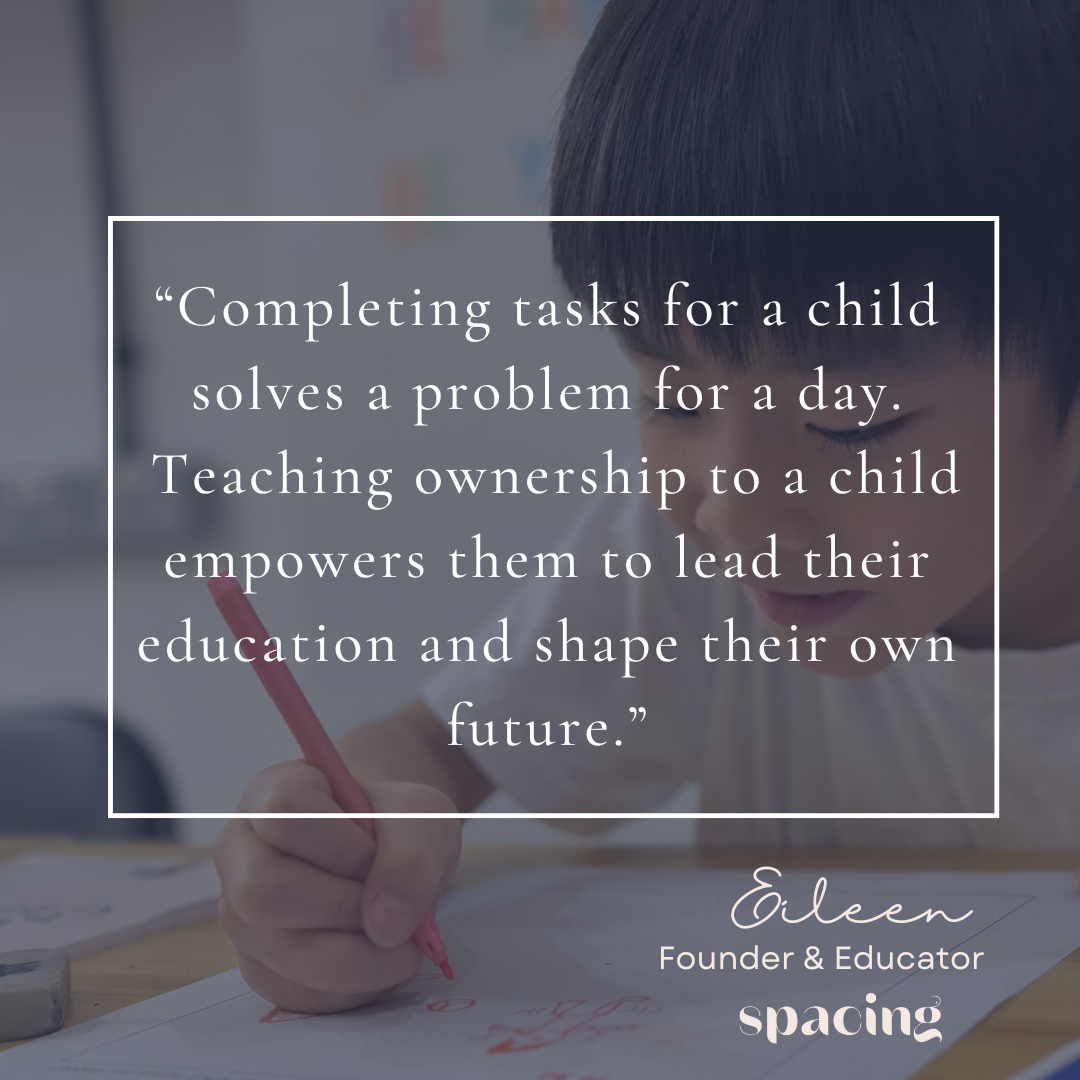It’s never too young to teach responsibility and accountability
“My child is too young to be responsible and accountable for their actions.” “They will eventually be responsible when they grow up.”
Does this sound familiar to you? I hear this a lot.
A Sense of Responsibility and Accountability Doesn’t Come Naturally
Much like learning to walk or ride a bike, a sense of responsibility and accountability needs to be taught and practised. Children don’t automatically understand these concepts—they need guidance, practice, and support to develop these important traits.
Teaching responsibility and accountability helps children become more mindful of their actions and aware of their own learning and lives.
What is responsibility?
Being responsible means completing tasks independently, making decisions, and solving problems to ensure that the task is completed.
What is accountability?
Accountability involves being answerable for the outcomes of actions, whether positive or negative, and accepting responsibility for the consequences.
Why is it important to teach responsibility and accountability to young children?
Here are three main reasons:
1. Development of Essential Skills: Children develop self-discipline, time management, and organisational skills, which are crucial for their future academic and personal success.
2. Sense of Accomplishment: When children are given responsibilities and held accountable for their actions, they gain a sense of accomplishment and self-worth.
3. Creation of Positive Habits: Instilling responsibility and accountability in young children helps create positive habits that last a lifetime.
How to Teach Responsibility and Accountability?
– Age-Appropriate Methods: Use strategies that align with their developmental stage so that you can set your children up for success.
“I will feed him, he cannot eat on his own. It will be a mess!” My mom said this when my nephew was learning to feed himself. Back then, I was still in my poly years doing my diploma in early childhood education. Luckily, I was able to convince her to let him learn, despite the inevitable mess.
Sure, feeding a child is faster, but it’s crucial to give them the time to learn to feed themselves. In our fast-paced city lives, we can take some time to slow down and we can plan longer mealtimes to help toddlers develop this essential skill. Yes, it was messy. And who cleaned up? My little nephew did! I handed him a tissue to wipe up some of his mess. Was it perfect? No. I still had to clean up after him, but it taught him accountability.
– Modelling Behaviour: Children learn by observing adults. Model responsible and accountable behavior, such as cleaning up after yourself and following through on promises. For school-going children, emphasize the importance of being punctual for school. Being punctual for school shows that you prioritize learning and view education as important. It sets a positive tone for the day, helps children maximize their learning time, and demonstrates respect for the teacher and classmates. Consistently arriving on time reinforces the value of education and the importance of being reliable and responsible.
– Simple Tasks: Give them simple responsibilities such as putting toys back in a bin after playing or placing their dirty clothes in a hamper. These tasks help them understand the concept of taking care of their belongings and contributing to their environment.
– Routine and Structure: Establish a consistent daily routine to help toddlers and young children understand what is expected of them. Knowing what comes next gives them a sense of responsibility and predictability.
– Simple Choices: Offer limited choices to help them learn decision-making and understand consequences. For example, ask them if they want to wear the red shirt or the blue shirt, and let them experience the result of their choice. For school-going children, ask if they want to write down their tasks given by the school or just remember them in their head, and let them experience the result of their choice.
– Positive Reinforcement: Praise and encourage your child when they complete a task or follow a routine. Positive reinforcement helps them understand that their actions have positive outcomes and reinforces responsible behaviour.
By integrating these practices into daily life, you can help your child develop a strong foundation of responsibility and accountability. This foundation will not only foster essential skills like self-discipline and time management but also instil ownership and be more mindful in their own education and lives.
“Complete tasks for a child, and you solve a problem for a day. Teach ownership to a child, and you empower them to lead their education and shape their future.”




